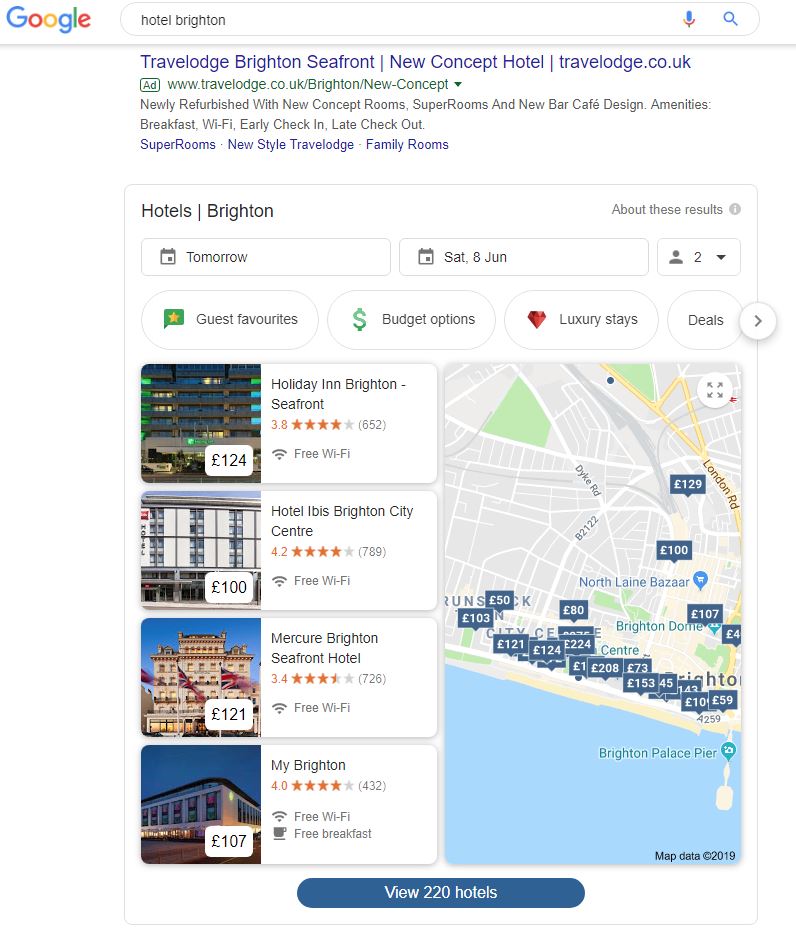[Webinar] Planning for 2021
In our latest webinar, we discuss what you can do to prepare your marketing activity for next year and the areas of growth that you should be looking out for.

Following a successful beta test last year, Google has updated the way that it displays results from hotel keywords to include pricing in organic search results. The new graph is displayed within the main results and depending on your search terms may display in addition to the right-hand banner showing availability and Google reviews. Its main objective is to enable users to check prices by travel date.
The new pricing graph is displayed in a prominent position on the search results page, taking up most of the valuable real estate above the fold. The new widget sits immediately beneath the traditional paid search ads and – crucially for SEO – above the organic results, pushing them even further down the page. Thus, users will need to scroll more to reach organic links, particularly on a mobile device.

The result is likely to be fewer clicks for organic results, which could negatively impact traffic, conversions, and booking revenue.
James Brown, Senior SEO Strategist at Oban, said: “If a website ranked first for a search term, it would have expected up to 30% of searches to click through to the site. However, the introduction of rich snippets has reduced that figure greatly. A number one ranking, above the fold but below featured results, might only receive a click from 15% of searchers. As Google introduces more interactive options, this number drops even further. Optimising for Google trips, featured results or quick answers is important to retain top spots and mindshare.”
Google has been rapidly developing its travel industry reach and functionality in recent years. Google’s consolidated travel offerings, which now sit in an umbrella service called “Trips” offers search functionality for flights, hotels and holiday bookings internationally.
In the context of these areas of investment and growth, this latest update aligns with Google’s strategy to increase market share of traffic and conversions within the travel sector in a broader context.
To appear in these enhanced listings, businesses must integrate their price feed via Google’s Hotel Ads API and can also opt-in to track conversions.
While the new hotel pricing information is designed to push hotel brands towards investing more budget in paying for visibility longer-term, it does also present an opportunity to increase exposure through the implementation of best-practice on-site SEO. As Google gets ever smarter at analysing and interpreting the information on travel web pages to offer users rich, dynamic and interactive results, the importance of optimising on-site content has never been more important.
Considering how best to present your content, for the benefit both users and search engines is a delicate balance. Ensuring SEO best practice is fully implemented requires attention to detail across content, technical and user experience.
If you want Oban to help boost your search visibility internationally, get in touch with a member of our team.